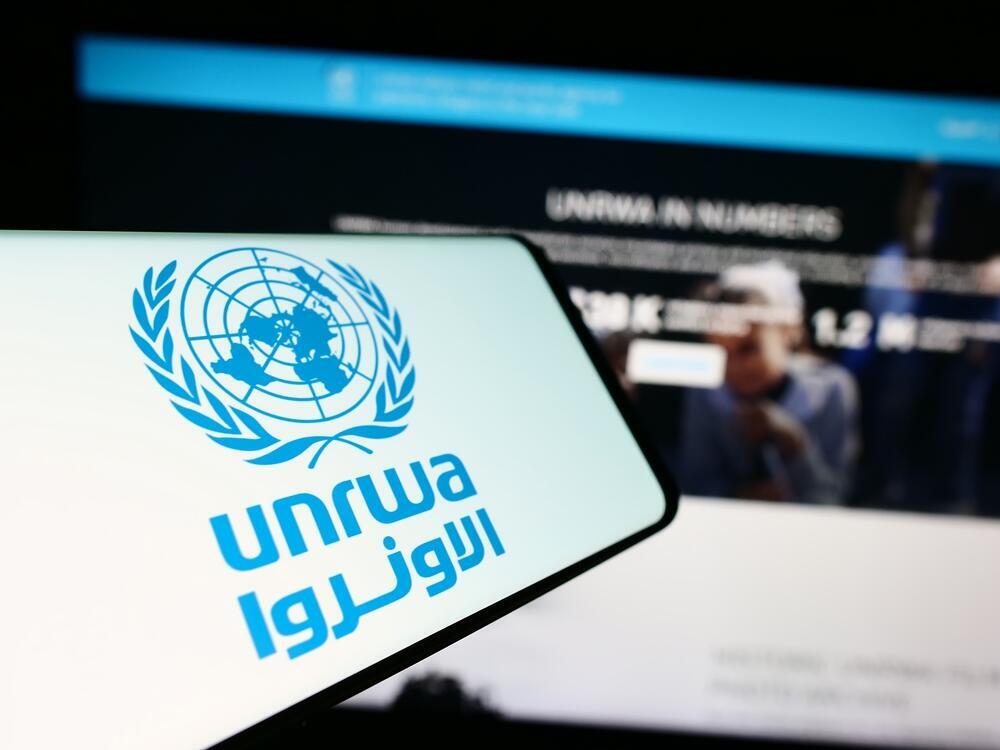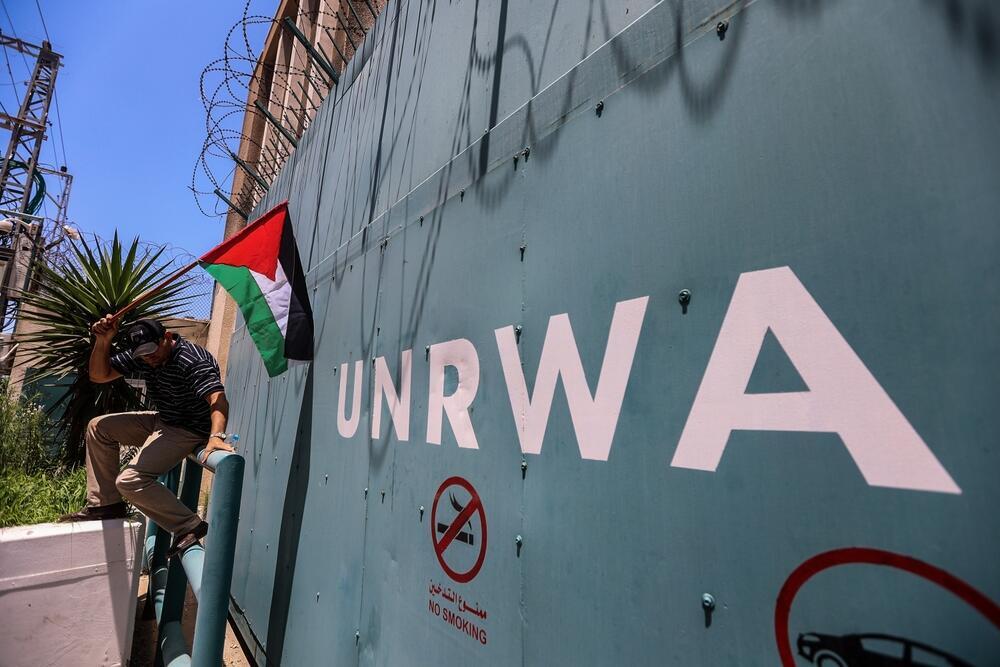Getting your Trinity Audio player ready...
If the bills passed Monday night by the Israeli parliament are implemented, the United Nations agency supporting Palestinians in Gaza and the West Bank could be banned in Israel by February 2025.
The plan, which is expected to be implemented in 90 days, would shift responsibilities from the organization known as UNRWA to other international aid organizations. Israeli lawmakers say the change aims to create a foundation for a more peaceful and productive relationship with Palestinians in Jerusalem and neighboring areas.
Founded in 1949, UNRWA provides education, health care, and aid to millions of Palestinians in Jordan, Lebanon, Syria, Gaza, and the West Bank, including East Jerusalem. Israel’s tenuous relationship with the agency became even more strained after the October 7 attacks, in which at least 12 Gaza UNRWA employees were found to have been involved. Israel later discovered evidence that at least 1,200 UNRWA employees in Gaza—10% of its Gaza workforce—were operatives of Hamas or Palestinian Islamic Jihad.
A bill banning state authorities from having any contact with the UNRWA and stripping all UNRWA workers of their diplomatic privileges and immunity passed the Knesset 87 to 9.
"I hope for a better education system in Palestinian society—one that teaches peace, not hate"
“I hope the Palestinians will see a weakened Hamas and weakened radical forces,” lawmaker Dan Illouz, who co-authored the bill, told The Media Line. “I hope for a better education system in Palestinian society—one that teaches peace, not hate—and then, a move forward. It might be a very slow move forward, but toward a more constructive Palestinian society that yearns for peace, not war.”
Lawmaker Sharren Haskel co-authored a second bill barring UNRWA from operating in Israeli territory. That bill passed 92 to 10.
"To protect our people, we have to change things, and it starts with UNRWA"
“I knew nine years ago that if UNRWA remained at the core of the Israeli-Arab conflict, there could be no different future,” Haskel told The Media Line. “I knew it would lead to death and destruction. I didn’t imagine it would pave the way to a massacre like the one on October 7. To protect our people, we have to change things, and it starts with UNRWA.”
Haskel’s bill would ban UNRWA from operating in East Jerusalem. A minority of the Palestinian students in East Jerusalem attend schools run by UNRWA, which are not associated with the Jerusalem municipality of the Israeli Education Ministry. Students at these schools study only in Arabic and follow the same curriculum as children in Gaza.
Getting rid of UNRWA schools in East Jerusalem would be the most significant result of the bill, allowing a new generation of Palestinian East Jerusalemites to become more integrated into Israel society, Haskel said.
The two bills were brought for a second and third reading Monday night, marking the start of the Knesset’s winter session. Both bills aim not only to remove UNRWA from Israel but also to sharply restrict its activities in Gaza and the West Bank. Israel will no longer issue entry permits for UNRWA workers from those territories or have the Israeli military coordinate on UNRWA operations.
Lawmaker Boaz Bismuth, who co-authored one of the bills, described the organization as “an aid agency for Hamas.”
“UNRWA is not a refugee aid agency,” he said.
Knesset Foreign Affairs and Defense Committee Chair Yuli Edelstein said that Israel has “the right and duty, as any sovereign nation committed to its survival, to combat threats against it, especially when they lie at its very heart.”
Palestinians will still receive aid, lawmakers say
Illouz explained that other international aid organizations are expected to support Palestinians as UNRWA is phased out. Potential alternatives include UNICEF, the United States Agency for International Development, the UN High Commissioner for Refugees, the World Health Organization (WHO), the World Food Programme, and others. The Palestinian Authority could also take over some responsibilities from UNRWA.
“These are organizations that work worldwide in all conflict zones,” Illouz explained. “It is only in the case of the Palestinians that there is this unique organization that deals with only one conflict. This is toxic, not constructive, and not conducive to peace. We want to return to the internationally accepted norm in all other conflicts.”
Haskel noted that the recent polio vaccination campaign in Gaza, a collaborative effort between WHO and UNICEF, ran smoothly.
She emphasized that Israel wants to ensure that aid can enter the Palestinian territories and get to those in need. Aid not coordinated through UNRWA is more likely to reach those it’s intended for, she said, noting that diverted UNRWA aid bags had allegedly been found in the late Hamas leader Yahya Sinwar’s Gaza hideout.
Illouz said he expects funding to be redirected from UNRWA to other aid organizations as needed.
“At the end of the day, the international community will need to decide if they care more about actual humanitarian aid for the Palestinians or strengthening this terror-supporting organization,” he said. “That’s a decision they’ll have to make. I hope they make the right one.”
He also called on the UN to change its definition of Palestinian refugees, noting that UNRWA now serves 5.8 million Palestinian refugees, up from the 750,000 it was originally tasked with serving.
Critics of UNRWA often point to the ballooning number of Palestinian refugees as a sign of the agency’s ineffectiveness, but UNRWA rejects the idea that Palestinian refugees are held to a more lenient standard than other refugees served by the UN.
“There is no basis to question the reality that Palestine refugees have for generations been compelled by circumstances to retain their refugee status,” then-UNRWA spokesperson Chris Gunness wrote in 2011. “Such questions betray a lack of understanding of the international protection regime and serve only to distract from the need to address the real reasons for the protracted Palestinian refugee situation, namely the absence of a negotiated solution to the underlying political issues.”
Philippe Lazzarini, the commissioner-general of UNRWA, called the Knesset’s decision “unprecedented” and “dangerous,” adding that it violated international law. He also said that the bills “will only deepen the suffering of Palestinians.”
Similarly, UN Secretary-General António Guterres warned that the decision would have “devastating consequences.”
Get the Ynetnews app on your smartphone:




